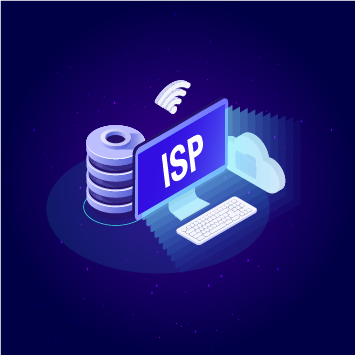Let’s face it—when it comes to proxies, not all are created equal. Some are like the VIP lounge at an airport, while others are more like a shady back alley where you're pretty sure someone’s trying to sell you a counterfeit Rolex. Spoiler alert: residential proxies are the VIPs, and public proxies? Well, let’s just say they’re the back alley variety. Residential Proxies: The Trustworthy Besties Residential proxies are like that friend who always shows up on time, brings snacks, and never spills your secrets. Why? Because they use real IP addresses assigned by Internet Service Providers (ISPs). This makes them look like a regular human browsing the web. They’re stealthy, reliable, and won’t embarrass you in front of your internet crush (a.k.a. that website you’re trying to scrape data from). Websites trust residential proxies because they seem authentic. It’s like showing up to a fancy party in a tailored suit versus wearing a neon tracksuit that screams, “I don’t belong here!” Residential proxies blend in seamlessly, and that’s what makes them so valuable. Public Proxies: The Sketchy Cousins Now, let’s talk about public proxies. These are free, open-to-anyone IP addresses that are about as trustworthy as a cat guarding a fish market. Sure, they’re tempting because they cost nothing, but you’ll probably pay in other ways—like getting your data stolen or having your browsing speed drop to the pace of a snail on vacation. Public proxies are often overused, abused, and riddled with security risks. They’re like borrowing a toothbrush from a stranger—you *could* do it, but should you? Probably not. Security: The Dealbreaker Residential proxies come with built-in security perks. They’re harder to detect and less likely to get blocked by websites. Public proxies, on the other hand, are basically walking around with a flashing neon sign that says, “BLOCK ME, PLEASE!” Plus, they’re often crawling with malware and hackers just waiting to pounce on your sensitive information. Yikes. Speed Matters Using a public proxy can feel like trying to stream Netflix on dial-up internet—it’s slow and painful. Residential proxies, however, keep things moving smoothly. They’re the Usain Bolt of the proxy world, while public proxies are more like that one friend who insists on walking everywhere at a leisurely pace. The Verdict If you value security, speed, and not getting banned from your favorite websites, residential proxies are the clear winner. Sure, they might cost a little more than public proxies, but think of it as an investment in peace of mind—and in not having to explain to your boss why your IP got flagged for suspicious activity. So next time you’re deciding between residential and public proxies, remember: one is the internet equivalent of a trustworthy best friend, and the other is a sketchy acquaintance you met at 2 a.m. on Craigslist. Choose wisely!
2025-02-06









